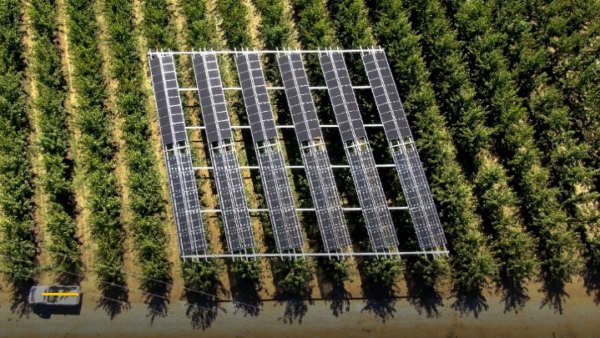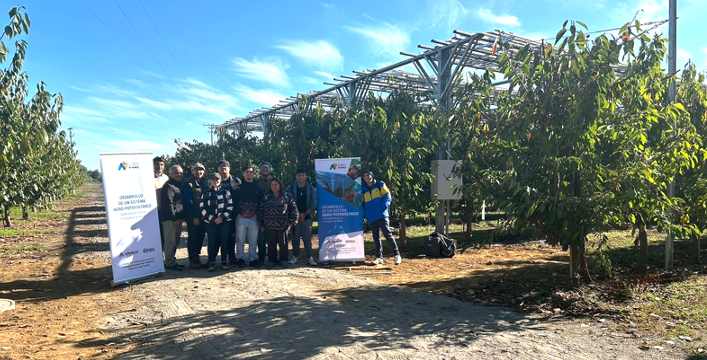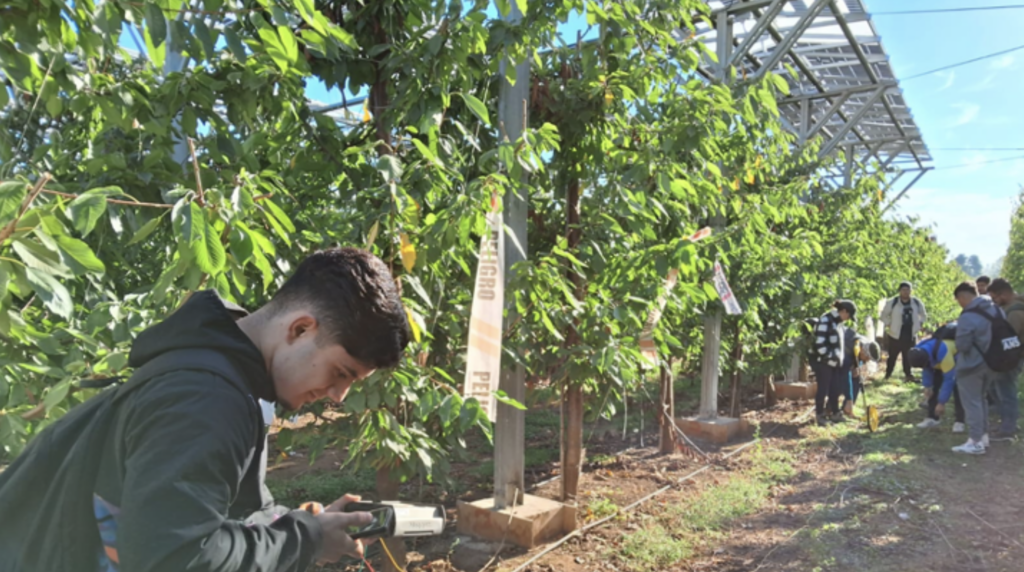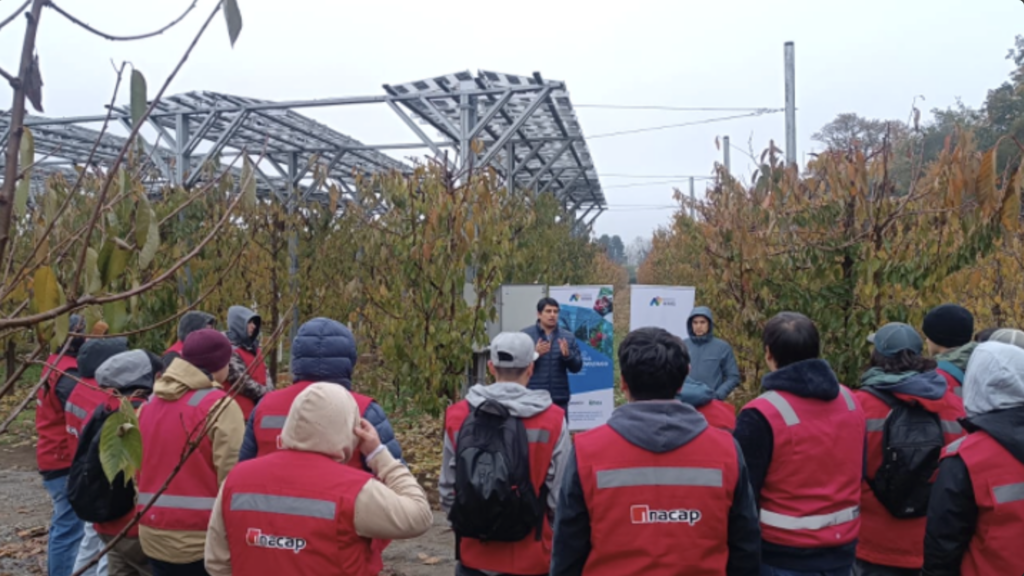Chile Adventist University Develops Sustainable Agriculture, Energy Project

Panoramic view of the agrophotovoltaic system applied to crops at Chile Adventist University in Chillán, Chile. [Photo: Chile Adventist University]
The components help reduce microplastic contamination of crop fruit.
September 15, 2024 | Chillán, Ñuble Region, Chile | Rosse Ramirez, South American Division, and Adventist Review
Development of an agrophotovoltaic system is an innovative and sustainable project that Chile Adventist University (UNACH) is developing, led by the Faculty of Engineering and Business. The project stands out for its dual purpose: generation of electrical energy using solar radiation and development of fruit orchards located under the photovoltaic panel structures. UNACH is located in Chillán, Ñuble Region, Chile.
The project, financed by the Innovation Fund for Competitiveness of the Regional Government of Ñuble, contemplates the production of cherries and strawberries using semi-transparent solar panels that facilitate the passage of light to the crops under them. This type of technology aims to reduce production costs and increase crop sustainability, quality, and production.

Cherry crops under photovoltaic panels. [Photo: Chile Adventist University]
“This project seeks to create a synergy between agricultural systems and photovoltaic systems,” Víctor Pizarro, director of the project, said. He detailed the benefit for both parties. “The crop benefits because we avoid sunburn and excess radiation; there is also an increase in the efficiency of water use. On the other hand, the panels also benefit, because having a crop underneath creates a cooler environment, and that benefits the panels,” he said.
Another major benefit is the decarbonization of energy using solar photovoltaic energy, which could mean a 100-percent saving in energy costs, as well as the protection of agriculture, since the height at which the panels are located (4.5 meters; 14.75 feet) protects them from meteorological events such as frost, hail, sunstroke, or torrential rain, considerably reducing the loss of fruit.

The photovoltaic panels increase the efficiency of land use as they combine energy production with fruit production, with benefits for both. [Photo: Chile Adventist University]
The panels being used in this project are made of semi-transparent glass, which allows the reduction of contamination in the fruit, making it unique in the world.
Jorge Retamal, a researcher in fruit growing at the Institute of Agricultural Research (INIA) Quilamapu, explains in relation to the project that “in cherry [growing], in the way we are planning it, which is a roof structure, it has an important highlight that is unique in the world. Nowadays, cherry roofs are used, but they are made of plastic. We are also aiming to reduce microplastic contamination of the fruit we eat.” In other words, there is a commitment to health and environmental care.

Students attend an electrical parameter measurement workshop at the agrovoltaic plant. [Photo: Chile Adventist University]
Pizarro, along with representatives of the agricultural sector in the Ñuble Region, recently participated in a technological tour of Europe, organized by UNACH, which allowed them to visit various pioneering agrophotovoltaic projects in fruit crops in Switzerland, Germany, and Spain to learn about the potential of applying these systems in the agricultural industry.
The development of this project has led UNACH to open its doors to other educational institutions and farmers in the region so that they can learn about the progress of the project firsthand, and through workshops, talks, and seminars, educate and raise awareness about the benefits of integrating renewable energies, thus linking it with the public and private sectors.
The original version of this story was posted on the South American Division Spanish-language news site.